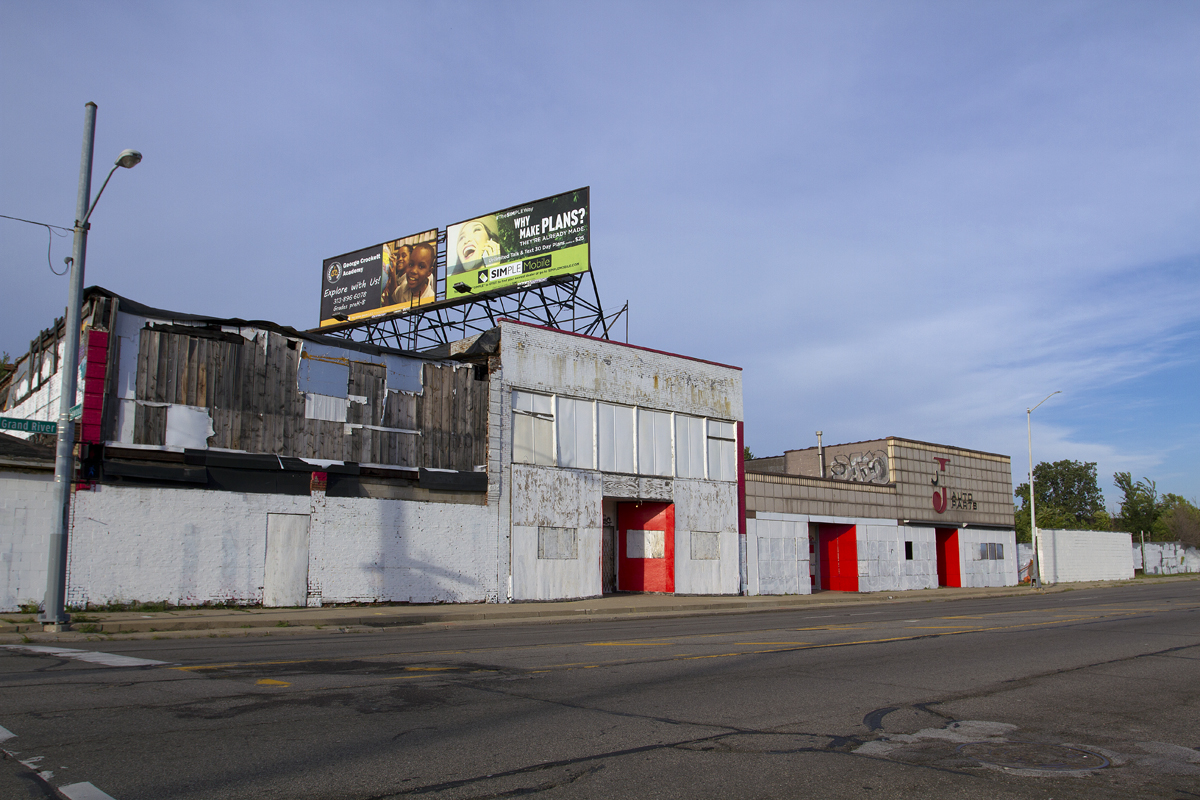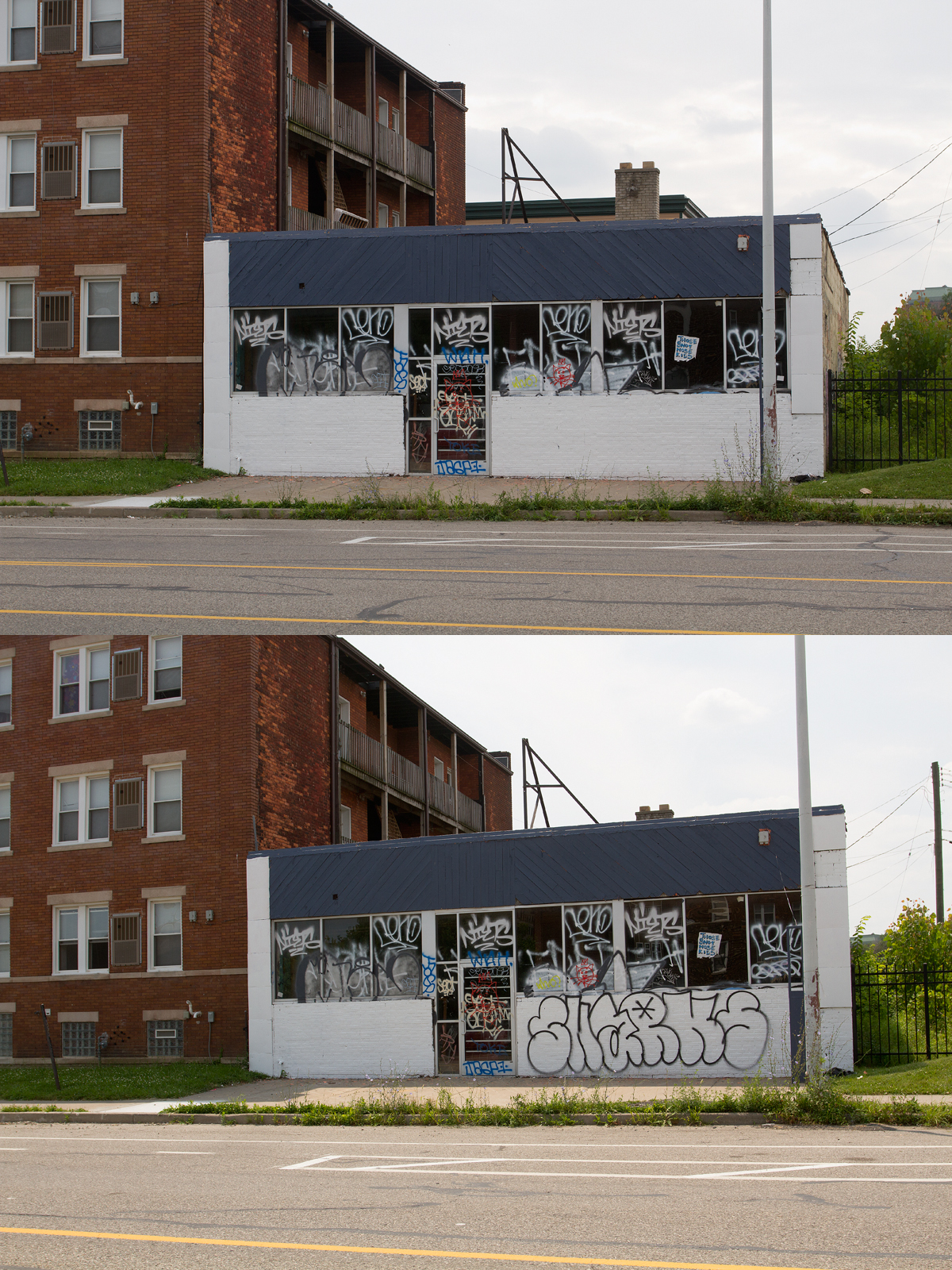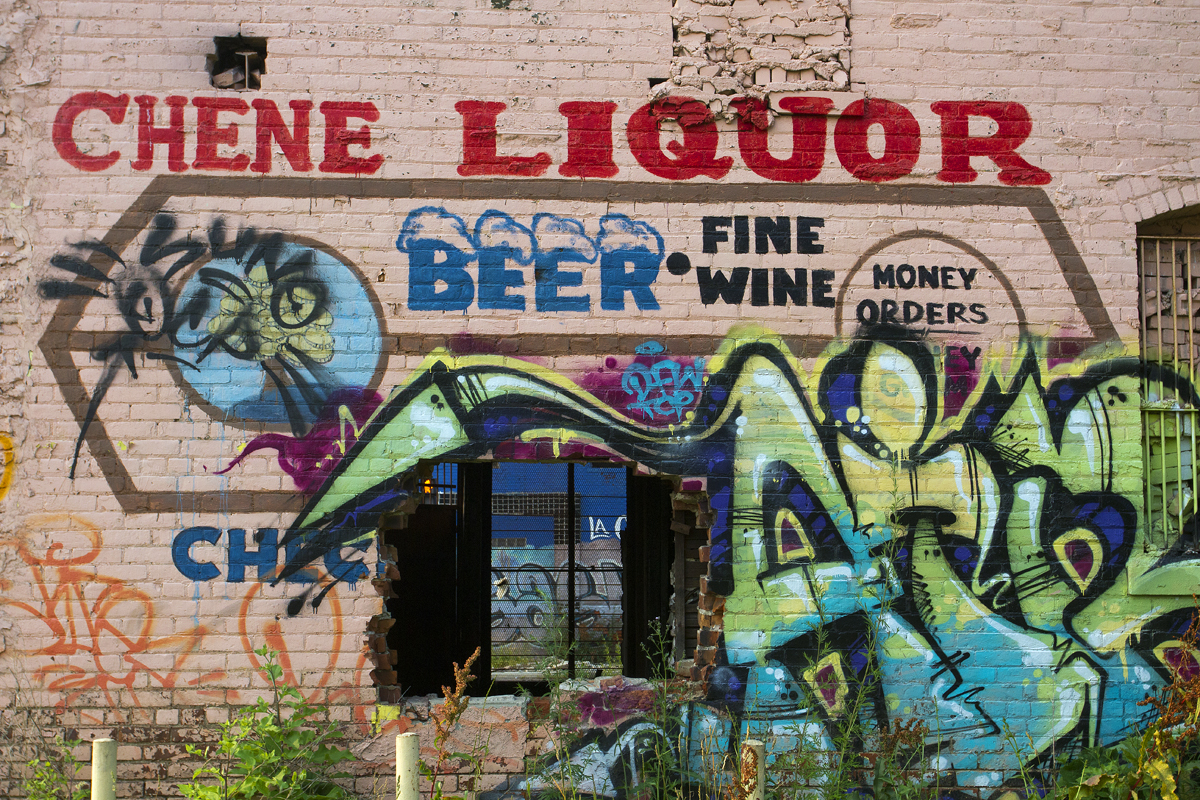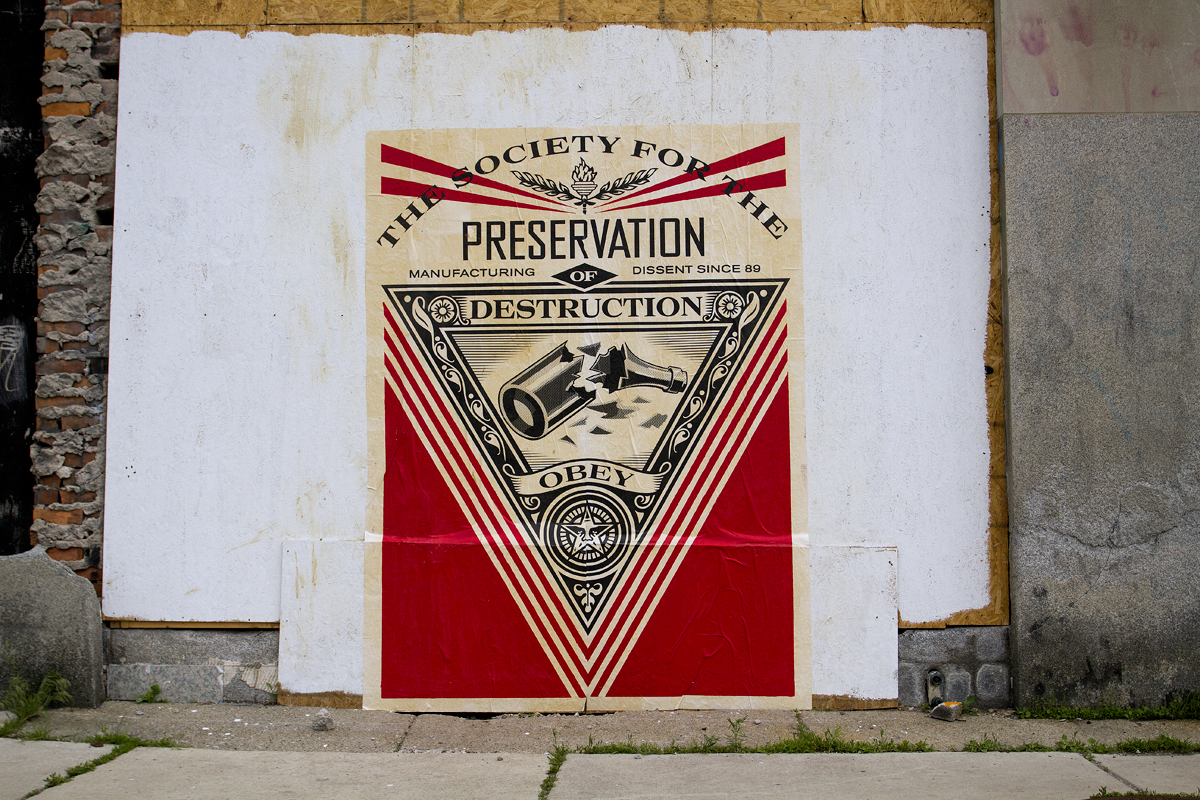
Detroit Mayor Mike Duggan is ratcheting up his crusade against graffiti, targeting businesses and homeowners who fail to remove spray paint from their properties within a week of getting a notice from city inspectors.
The former prosecutor who sent graffiti artists to jail in 2003 has already fined property owners for not removing graffiti and recently began sending in crews to remove the vandalism, billing the property owners up to $1,000. That doesn’t include the cost of the fine.
The zealous approach has caused alarm among property owners who say they can’t afford to remove graffiti every time their buildings are tagged because vandals are persistent and will continue tagging their buildings.

One homeowner, Freddie Jones Jr., told the Free Press that the city removed graffiti from his building on Mack near McClellan after giving him just four days’ notice. The cleanup was shoddy, he said, and the city charged him nearly $1,000.
The city, which said Jones was given at least a week, recently posted a warning on its website that property owners would be targeted and suggested that graffiti removal was easy and inexpensive.
“Products are available to dissolve graffiti on unpainted surfaces so that it can be washed off with water,” the city wrote on its website. “A power washer can remove the graffiti after it’s been treated for 20 minutes but a garden hose can rinse the graffiti off if it’s treated overnight. The City is partnering with Sherwin Williams to provide discounts at Detroit area locations on graffiti-resistant paints, power washer rentals, and painting supplies so that if you paint over graffiti and it returns you can wash off the new graffiti with soap and water, or, in the worst case scenario, by power washing.”
Graffiti removal experts said Duggan’s office is oversimplifying the process and downplaying the costs.
Duggan’s office said it didn’t know how many people have been fined and couldn’t name the graffiti removal contractor for the city.
Duggan also is pursuing felony charges against graffiti writers who cause damage exceeding $1,000, continuing a practice that he started when he was a prosecutor in 2003.

Graffiti has become a much larger nuisance in the 12 years since then, covering thousands of vacant and occupied buildings, houses, road signs, parking meters, freeway overpasses, bridges, sidewalks and parking garages. Duggan said the vandalism is hampering economic development and turning neighborhoods into eyesores.
In 2013, vigilantes began attacking graffiti writers in the city because police were doing nothing to stop the vandalism.
As a result of the crackdown, many graffiti-riddled buildings along Gratiot and Grand River, for instance, have been painted over.
But the mayor has been accused of going overboard, placing the burden on property owners who already are struggling to survive in one of the nation’s poorest cities. There’s little they can do to stop vandals from tagging freshly re-painted buildings.

Duggan also caught criticism for his high-profile pursuit of Shepard Fairey, a world-renowned street artist who is accused of erecting posters on vacant, dilapidated buildings while in Detroit painting murals for billionaire Dan Gilbert.
But the mayor responded that a zero-tolerance policy is the best way to stop the proliferation of graffiti. Nothing else, he pointed out, has worked.
Steve Neavling
Steve Neavling lives and works in Detroit as an investigative journalist. His stories have uncovered corruption, led to arrests and reforms and prompted FBI investigations.

3 Responses to "Mayor Duggan’s war on graffiti targets victims of vandalism, costing them $1,000+"